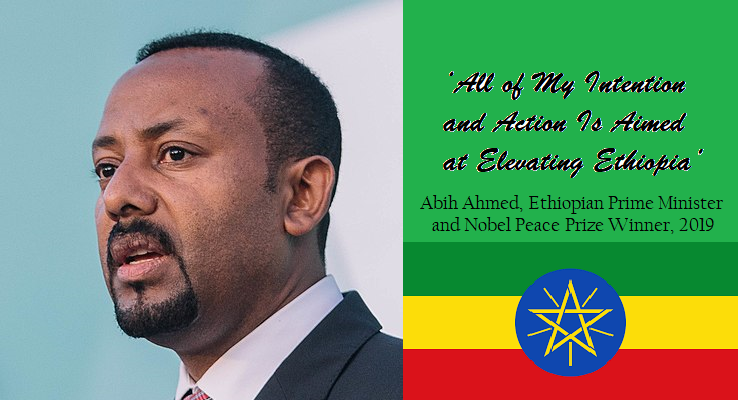
The Nobel Peace Prize is one of five Nobel Prizes established by the will of Swedish industrialist, inventor, and armaments manufacturer Alfred Nobel. The other prizes are in Chemistry, Physics, Physiology or Medicine, and Literature.
The prize has been awarded annually since March 1901, with some exceptions. The Nobel Peace Prize is awarded in recognition of efforts of those have “done the most or the best work for fraternity between nations, for the abolition or reduction of standing armies and for the holding and promotion of peace congresses”.
This year’s Nobel Peace Prize winner is Ethiopian Prime Minister, Abih Ahmed. The announcement was made Friday by the Norwegian Nobel Prize Committee. There were 301 nominees among whom was Teenage climate activist Greta Thunberg, the odds-on favorite to win the prize this year.
However, it seems Abiy Ahmed’s role in bringing national and regional peace overshadowed Thunberg’s activism geared towards building more international cooperation in the area of climate change, leading the Ethiopian Prime Minister to be awarded the Prize.
Aljazeera noted that “Ethiopian Prime Minister Abiy Ahmed Ali’s awarding of the Nobel Peace Prize has been ushered in by praise for his efforts in ending two decades of hostility with neighboring Eritrea and initiating broad domestic changes, but it also calls for tackling outstanding challenges and further enhance reforms.”
According to the BBC, “Mr. Abiy’s peace deal with Eritrea ended a 20-year military stalemate following their 1998-2000 border war. He was named as the winner of the 100th Nobel Peace Prize in Oslo, where he will receive the award in December. It is worth some nine million Swedish crowns (about £730,000; $900,000).”
In an opinion piece in DW, however, Ludger Schadomsky argues that “the Ethiopian laureate is surely a reformer, but he predominantly garners recognition beyond his country’s borders. Despite the Nobel committee’s well-meaning intentions, it is the wrong choice.” Ludger Schamdomsky contends that,
“despite a number of somewhat questionable recipients — such as former US President Barack Obama, or the European Union — the Nobel Peace Prize continues to carry considerable symbolic meaning. For precisely this reason, awarding it to the young reformer hailing from Addis Ababa despite the stalled progress on his peace initiative is also the wrong choice.”
Terrence Lyons thinks that Abiy’s “Nobel achievements” are real but brittle as Ethiopia is on the right course but still requires a lot of work to be done. Mohammed Girma replicates this argument, stating that “Ethiopia’s Abiy Ahmed has won the Nobel Prize but there are still big hurdles for peace at home”.
Notwithstanding, Simon Allison argues that Abih Ahmed deserves the prize for being the most transformational leader in Africa’s recent history. Allison uses the symbolism of Abiy’s exceptional management of the soldier’s demands of 2018 preceded by the Prime Minister’s actions to open up Ethiopia’s democratic space. These included “releasing thousands of political prisoners, lifting restrictions on opposition parties, and opening up the space for independent media.”
The Nobel Peace Prize should serve as a reminder to the Ethiopian Prime Minister that he must not depart from the path of democratic reforms in Ethiopia. It should also serve to remind him that he must stay the course of transforming the Horn of Africa country, reinforcing its freedoms and forging regional cooperation efforts that will ultimately make Ethiopia a beacon of democracy and peace in the region and in Africa.
Leave a Reply